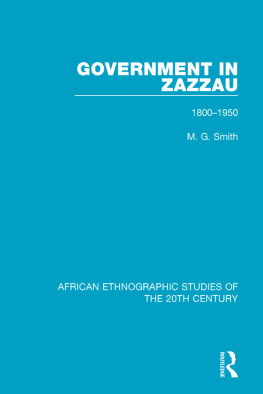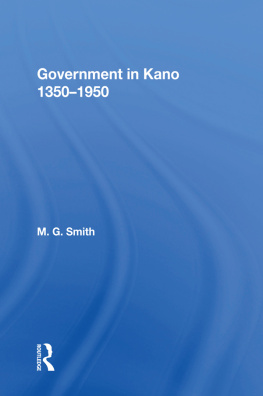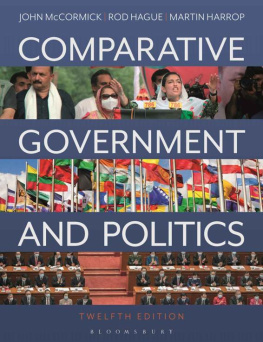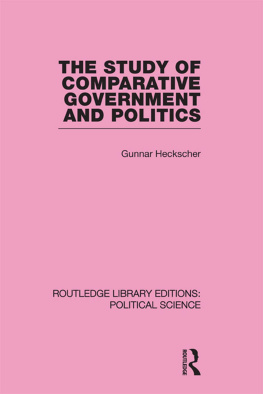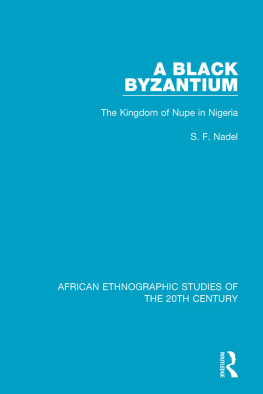First published in 1960 by Oxford University Press for the International African Institute.
This edition first published in 2018
by Routledge
2 Park Square, Milton Park, Abingdon, Oxon OX14 4RN
and by Routledge
711 Third Avenue, New York, NY 10017
Routledge is an imprint of the Taylor & Francis Group, an informa business
1960 International African Institute
All rights reserved. No part of this book may be reprinted or reproduced or utilised in any form or by any electronic, mechanical, or other means, now known or hereafter invented, including photocopying and recording, or in any information storage or retrieval system, without permission in writing from the publishers.
Trademark notice: Product or corporate names may be trademarks or registered trademarks, and are used only for identification and explanation without intent to infringe.
British Library Cataloguing in Publication Data
A catalogue record for this book is available from the British Library
ISBN: 978-0-8153-8713-8 (Set)
ISBN: 978-0-429-48813-9 (Set) (ebk)
ISBN: 978-1-138-59810-2 (Volume 60) (hbk)
ISBN: 978-0-429-48663-0 (Volume 60) (ebk)
Publisher's Note
The publisher has gone to great lengths to ensure the quality of this reprint but points out that some imperfections in the original copies may be apparent.
Disclaimer
The publisher has made every effort to trace copyright holders and would welcome correspondence from those they have been unable to trace.
Due to modern production methods, it has not been possible to reproduce the fold-out maps within the book. Please visit www.routledge.com to view them.
GOVERNMENT IN ZAZZAU 1800-1950
M. G. SMITH
Published for the
INTERNATIONAL AFRICAN INSTITUTE
by the
OXFORD UNIVERSITY PRESS
LONDON NEW YORK TORONTO
1960
CONTENTS
Oxford University Press, Amen House, London E.C.4
GLASGOW NEW YORK TORONTO MELBOURNE WELLINGTON BOMBAY CALCUTTA MADRAS KARACHI KUALA LUMPUR CAPE TOWN IBADAN NAIROBI ACCRA
International African Institute 1960
The publication of this volume was made possible by funds granted by the Carnegie Corporation of New York. The Corporation is not, however, to be understood as approving any statements made or views expressed therein.
Printed in Great Britain
T HIS book grew slowly out of a short essay which I wrote in 1952, on the principal changes which had taken place in the government of Zaria since the Fulani conquest. The essay was stimulated by the publication of two Hausa documents dealing with the history of the Habe government of Zaria.
I showed it to Professor Daryll Forde for his comments, and found that further material had to be included in the redraft. The essay was duly rewritten a number of times, expanding progressively without, however, losing its essay character. At this stage it lacked a theoretical viewpoint and a detailed history of the process of change; only the well-remembered salient factors and events were dealt with, and the relevant field materials remained un-analysed. But as the description of the differing governmental systems gradually filled out, I began to feel the need for some conceptual framework on which to base their analysis and comparison. The first draft of Chapter 2a theory of governmentwas the result. Then, when the whole manuscript was lost shortly after, I found that I had either to abandon the work or to think of it afresh as a monograph on governmental change.
By this time I had become too involved with the subject to abandon it, and so I started afresh, indexing my notebooks and writing up all the data relevant to my theme. In this new version I included a detailed chronicle of the history of Zaria from 1804 to 1950, and equally systematic accounts of the alternative governmental forms. When this was done, I found that I had set out the materials for a study of governmental change, but had no theory or method of analysis for dealing with it. In Chapter 8, which was my solution of these problems, I was able to test the theory of government set out in Chapter 2 by application. From this history of the manuscript it will be seen that the two theoretical chapters with which it begins and ends arose at different times out of the problems presented by the materials when these had been set forth.
Hitherto, social anthropologists have tended to avoid historical studies, yet without this it is hard to see how an adequate theory of social change can be developed. As social anthropologists, however, we differ from the historians in certain important ways. The two theoretical chapters and the general organization of this study illustrate my view of an anthropological approach to history, and the account of the growth of this book shows how this approach and the theories associated with it have developed.
To Professor Daryll Forde I owe far more than I can acknowledge for his tireless interest and careful criticism of all the drafts of this book. He has always insisted on clarification and fullness of detail, and even when disagreeing with my interpretations, has given generous constructive criticism. It is not too much to say that without his interest the manuscript might not have got much further than the first draft.
Dr. Esther Goldfrank and her husband, Professor Karl A. Wittfogel, have also criticized the manuscript at different stages, and I have drawn much encouragement from their stimulating comments.
To Mallam Hassan and his brother Mallam Shu'aibu, whose books on the Habe of Abuja initially made this endeavour possible, I owe the warmest appreciation and thanks. Mallam Hassan taught me Hausa at the School of Oriental and African Studies, and I had the good fortune to meet Mallam Shu'aibu in Katsina Province, Nigeria, where he was Provincial Education Officer, in February 1959. We discussed his text in detail, and he gladly answered certain critical questions about the patterns of recruitment to Abuja offices which my further experience in Nigeria had raised. A paragraph in the text summarizes this new information.
My Fulani informants are too many to name individually. The chief of them were the Madaki Sa'idu, son of the Emir Aliyu, the Galadima Hayatu, the Madauci Ibrahim, the Fagaci Muhammadu, Mallam Abdulkadiri of Tukur-Tukur, and especially Mallam Ibrahim Mijiniya, who has since died. To these and all others who taught me the cultural significance of their history, I am most sincerely indebted. I also drew on District Notebooks and other administrative records.
The fieldwork on which this study is based was carried out in 194950 on a Fellowship of the Colonial Social Science Research Council. Since completing work on this manuscript, I have also had the opportunity to return to Northern Nigeria to carry out comparable studies of political history in the emirates of Kano, Katsina, Daura, and Sokoto as a member of the staff of the Nigerian Institute of Social and Economic Research. I am most grateful to Professor R. H. Barback and the Institute for providing me with this opportunity, and to the University College of the West Indies for granting an extension of leave for this purpose. My object in returning to Northern Nigeria and studying the history of these states was simply to test those generalizations about the process of governmental change with which this book concludes against new bodies of data. For if, to the social anthropologist, history may permit or require theories of change, these theories must be stated explicitly and must be subject to comparative tests.

